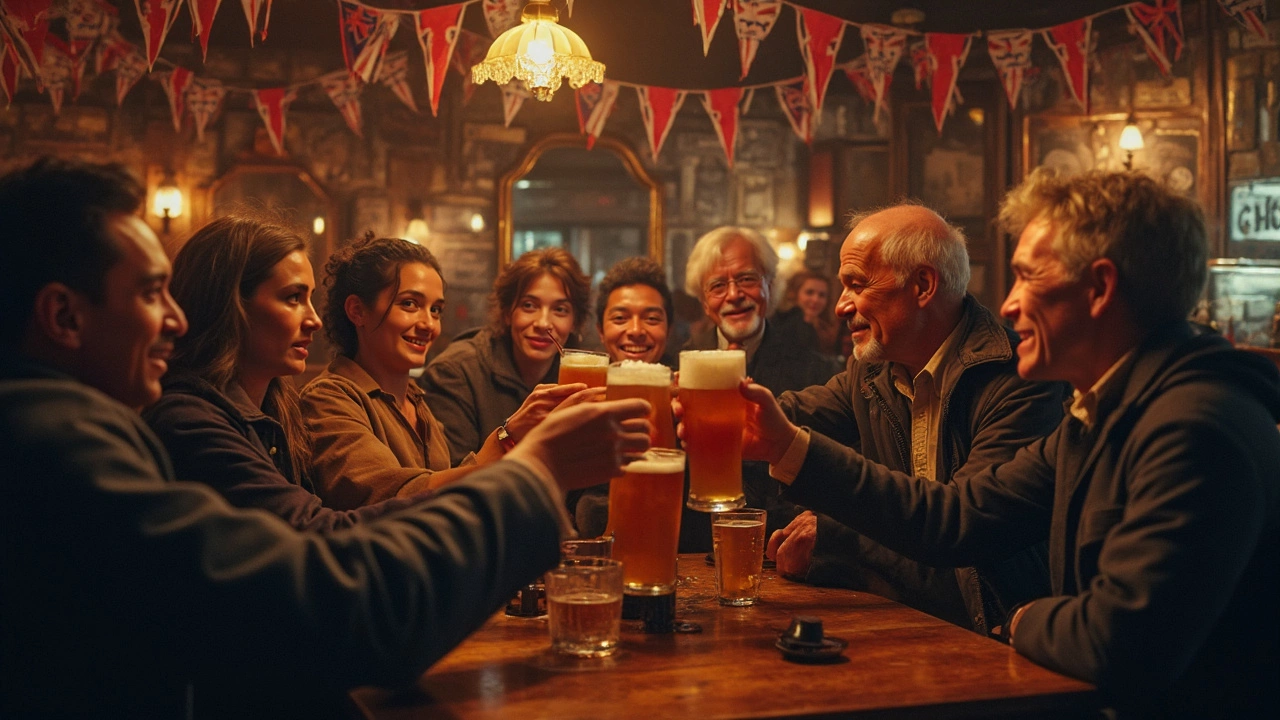Cheers meaning – the real deal behind the word
If you’ve ever heard someone shout "cheers" at a pub or in a text, you might wonder what the heck they’re really saying. Is it just a way to say thanks, or does it have a deeper vibe? Let’s break it down so you can use it properly, whether you’re raising a glass or texting a friend.
From a toast to a thank‑you
Originally, "cheers" comes from the old French word chiere, meaning face or head, and later morphed into a wish for good health. In a bar, you hear it when people clink glasses – it’s basically saying “to your health!” Over time, the phrase slipped into everyday English as a casual thank‑you. So when a mate hands you a coffee and says "cheers," they’re swapping a quick gratitude for the drink.
Casual slang and online vibes
On the internet, "cheers" has become a shortcut for gratitude, goodbye, or even a friendly sign‑off at the end of an email. You’ll see it in texts, forums, and even in business chats – it’s friendly, low‑key, and works in both formal and informal settings. The tone can shift: a cheerful "Cheers!" at the end of a message feels upbeat, while a dead‑pan "cheers" might come across as sarcastic.
One trick to nail the right feel is to match the energy of the conversation. In a relaxed chat, a quick "cheers" after someone shares a link feels natural. In a formal email, you might want to go with "Thank you" instead, unless the company culture leans casual.
Some people also use "cheers" as a short way to say "good luck" before a big event. Think of a sports team heading out to a game – a coach might shout "cheers, lads!" It’s a morale boost, not a literal toast.
Geographically, the usage varies. In the UK, Ireland, Australia, and New Zealand, you’ll hear "cheers" everywhere – from pubs to office kitchens. In the US, it’s more common in certain circles, especially among younger folks or those who love British culture.
Even the way you spell it can shift meaning. Adding an exclamation point ("Cheers!") amps up the enthusiasm. A lowercase "cheers" can feel more laid‑back, almost like a sigh of relief after a long day.
When you’re not sure if "cheers" fits, just ask yourself: would I say this if I handed someone a drink? If yes, then you’re probably good. If you’re just acknowledging help, a simple "thanks" might be clearer.
Bottom line: "cheers" is a versatile word that started as a toast and grew into a multi‑purpose thank‑you. Use it when you want to keep things friendly and concise, and you’ll blend right in with native speakers.
Next time you’re at a gathering, raise your glass and say "cheers" – you’ll be part of a centuries‑old tradition, while also giving a nod to modern slang. Enjoy the flexibility the word offers, and don’t be afraid to sprinkle it in your everyday chats.

What Do Brits Say When They Toast? Real UK Toasting Traditions Explained
Ever wondered what Brits actually say when raising their glasses? This article digs into the classic phrase 'cheers,' what it really means, and how to use it without looking awkward. You’ll find out about different toasting habits in the UK, sneaky tips for fitting in at a pub or party, and a few unexpected facts about the traditions behind the toast. Understand why ‘cheers’ isn’t just for alcohol, and what to do if someone forgets to clink glasses. Useful, practical, and made for anyone who wants to blend in like a local.
